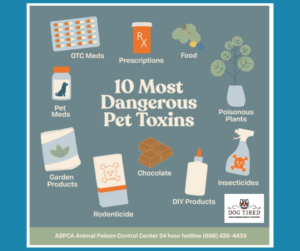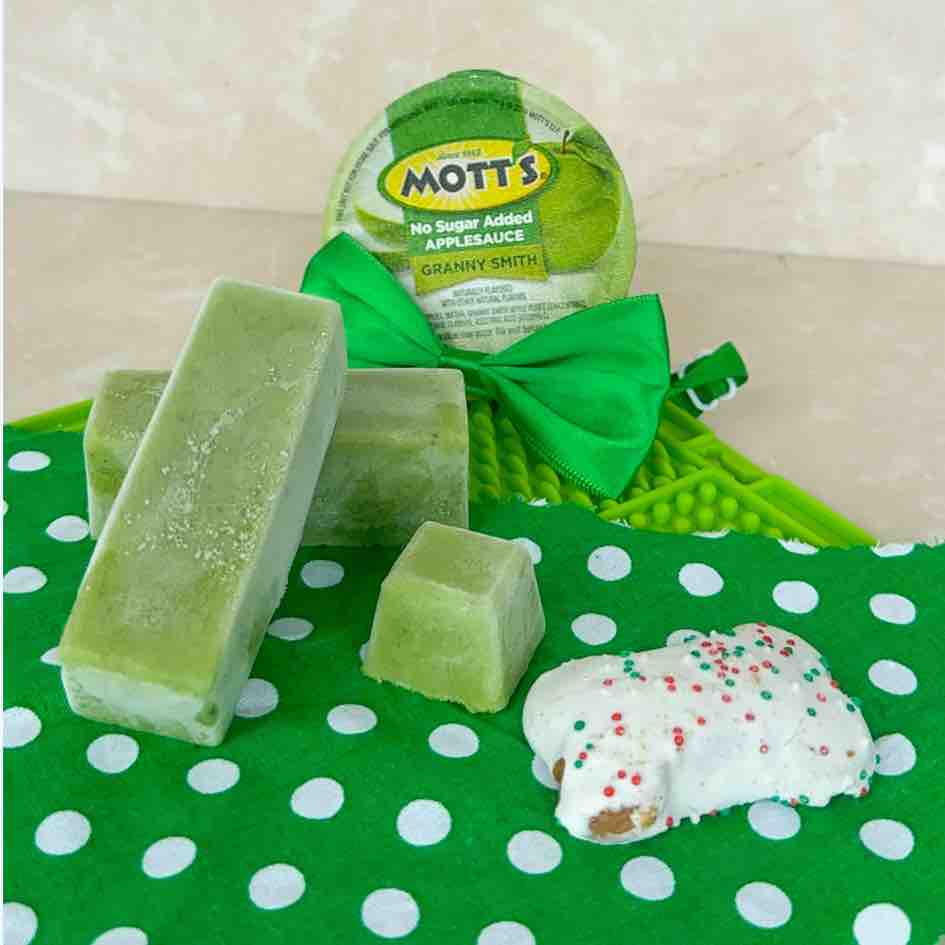by Stephanie Annis, Marketing Manager, Dog Tired Dog Enrichment Center
March is Pet Poison Prevention Awareness Month. You may think it’s easy to keep hazardous substances away from pets, but accidental spills, dropped pills, and even beautiful bouquets can spell disaster for dogs and cats if they’re consumed.
Accidental pet poisonings happen every day, and the ASPCA Animal Poison Control Center fields calls about them. We talked to an expert to find out what items are most toxic for pets and what to do to prevent poisoning in the first place.
These Were the ASPCA’s Top 10 Pet Toxins for Cats and Dogs
- Over-the-Counter Medications - OTC meds made up nearly 17 percent of exposures. Most common items? Cold medications, vitamins, and pain relievers (ibuprofen, naproxen, and acetaminophen). Pet owners should keep medications locked away at all times and never leave pills lying around in purses and backpacks.
RELATED: Can You Give a Dog Benadryl?
- Human Prescription Medications - Prescriptions (not the pet-safe ones from your veterinarian) were 15% of exposures. Common kinds included antidepressants, anticonvulsants, and cardiac medications.
- Food - Human foods that are toxic to cats or dogs, made up 13% of exposures. This year, bad reactions came from protein and snack bars as well as grapes and raisins (which are bad for cats and dogs), xylitol, garlic/onions.
RELATED: How to Know if Your Dog Has Eaten Something Toxic
- Chocolate - The sweet treat makes up almost 76 exposures per day. The higher the cocoa content, the more dangerous it is for cats and dogs, making straight cocoa powder, semisweet chocolate, and dark chocolate the most poisonous types.
- Plants - With well-meaning bouquets and more gardening during the pandemic, toxic exposures to plants are up from 8th place the year before. Want to enjoy greenery with less worry? Try choosing from some of these cat-friendly plants and dog-friendly plants.
- Household Toxicants - Things like paint, spackling, and other DIY home improvement substances made up a significant number of reported pet poisonings this past year. It's no surprise given that many people spent a large portion of their time in their homes due to the pandemic.
RELATED: How to Keep Your Spring Cleaning Safe for Pets, With Advice From the Experts
- Rodenticide - Rat poison exposures were even more difficult to treat this year because of the rising popularity of baits with cholecalciferol (vitamin D) which can cause kidney failure if not treated promptly.
- Veterinary Products - Veterinary products are normally good, but not in high quantities or used for the wrong conditions. Notable this year were chewable medications for pain, incontinence, or anxiety.
- Insecticide - Insecticide poisoning cases (due to things like ant killer, wasp poison, and products used against larvae and eggs) continue to fall year-over-year, down to just 4.7% of cases.
- Garden Products - Sitting at number 10 on the list again this year, garden products like fertilizer and weed killer make up almost 3% of reported cases of pet poisoning.
RELATED: What To Do if You Think Your Cat's Been Poisoned
If you witness your pet ingesting something he/she should not be, safely collect the materials involved. When seeking veterinary care, bring the product’s container with you, this can be helpful for veterinary professionals treating your pet.
If you suspect a pet poisoning, it’s important to seek emergency veterinary care. In addition, the ASPCA has an Animal Poison Control number, (888) 426-4435.







